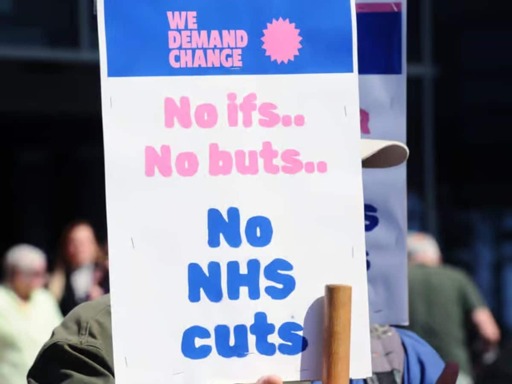Health secretary Wes Streeting has told NHS bosses to begin the next phase of Labour’s plan for the integration of NHS England with the Department for Health and Social Care (DHSC). The government is claiming that, by the end of parliament, the NHS cuts from “unnecessary bureaucracy” will raise an extra £1bn.
Addressing the NHS Providers Conference today in Manchester, Streeting said:
The government is protecting investment in the NHS at the Budget, worth an extra £29 billion to the health service. I want to reassure taxpayers that every penny they are being asked to pay will be spent wisely.
We have already cut waiting lists for the first year in 15 years, recruited 2,500 more GPs, and cut ambulance waits for patients with conditions like heart attacks and strokes. Our investment to offer more services at evenings and weekends, arm staff with modern technology, and improve staff retention is working. At the same time, cuts to wasteful spending on things like recruitment agencies saw productivity grow by 2.4% in the most recent figures – we are getting better bang for our buck.
We’re now pushing down on the accelerator and slashing unnecessary bureaucracy, to reinvest the savings in frontline care. It won’t happen overnight, but with our investment and modernisation, we will rebuild our NHS so it is there for you when you need it once again.
NHS cuts — ‘Callously dismissed’
In reality, “unnecessary bureaucracy” comes in the form of thousands of NHS staff, who will now be made redundant. Earlier this year, the government estimated that this could include 18,000 admin and managerial jobs.
Of course, with those redundancies come thousands of redundancy cheques and payouts. This has proved a sticking point for Streeting’s plans, potentially running a one-off bill of £1bn. Just yesterday, chancellor Rachel Reeves rejected the health sec’s request for the extra billion to fund mass layoffs.
Instead, the Treasury has given the DHSC permission to overspend its own budget. However, that’s on the proviso that the department will receive less funding next year, and no extra money overall. Commenting on the announcement that Streeting had found his layoff money, Unison head of health Helga Pile said:
This process has been a shambles and should never have taken so long. Demoralised staff have had months of uncertainty, with the threat of job losses hanging over them.
Large-scale redundancies like these should never be callously dismissed as cuts to ‘bureaucracy’.
In a few short months, the NHS will lose thousands of staff whose skills and experience will continue to be needed.
That’s because these cuts are being rushed through ahead of proper decisions being made about how best to run services. That’s bad news for patients and staff left behind will be under enormous pressure.
Autumn budget
Streeting made his announcement just ahead of next week’s budget. The planning stages of the autumn announcement have seen Reeves scrambling to find ‘waste’ to cut in public services. Meanwhile, she’s steadfastly refused to heed cross-party public outcry for a tax on Britain’s wealthiest.
The government has confirmed that it’s still on schedule to reintegrate NHS England with the DHSC by 2027. This includes an imminent 50% cut in the number of Integrated Care Boards (ICBs) employees. ICBs are regional organisations which plan health services for their areas.
The government is now claiming to have ‘sharpened’ the role of ICBs as strategic commissioners. According to the government’s press announcement:
ICBs will be tasked with transforming the NHS into a Neighbourhood Health Service, with a greater focus on preventing illness.
As part of this year’s spending review, the chancellor has agreed to an extra £29bn a year. Although Labour is keen to point out gives NHS staff what it calls an “above inflation pay rise”, Streeting is still at loggerheads with resident doctors over pay and conditions.
As British Medical Association (BMA) representatives have repeatedly pointed out, residents’ pay is still lagging over 20% behind 2008 levels. Likewise, 34% of resident doctors hadn’t been able to secure regular locum or substantive employment in time for August this year, and competition for GP specialty training posts is higher than it’s ever been.
The BMA has stated bluntly that Streeting’s plans for the NHS won’t create new training posts for GPs fast enough to keep up with public demand. As such, with over half the NHS’s medical workforce walking out on strike this Friday, the health secretary’s glee at finding £1bn to slash thousands of NHS jobs is likely to be short-lived.
Featured image via Portsmouth.co.uk
From Canary via this RSS feed


